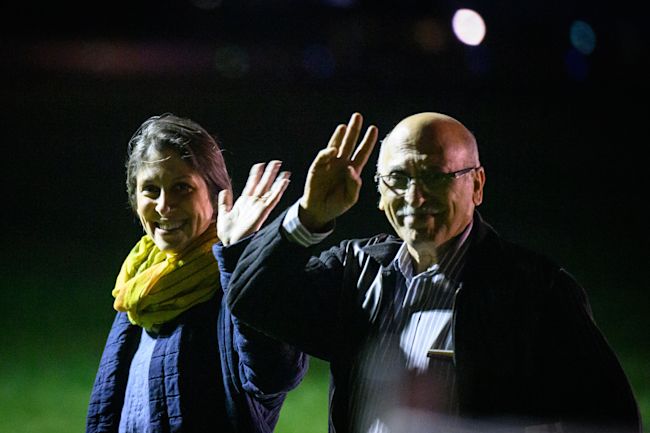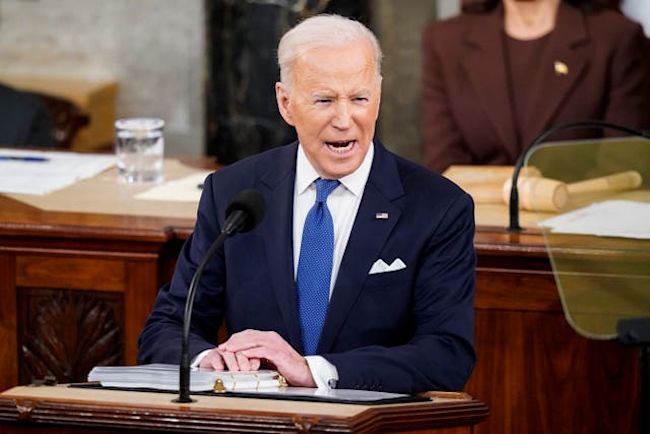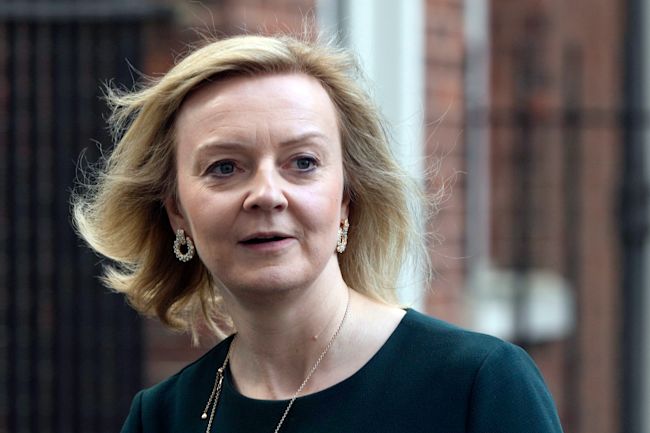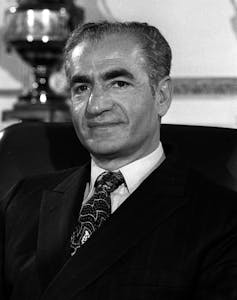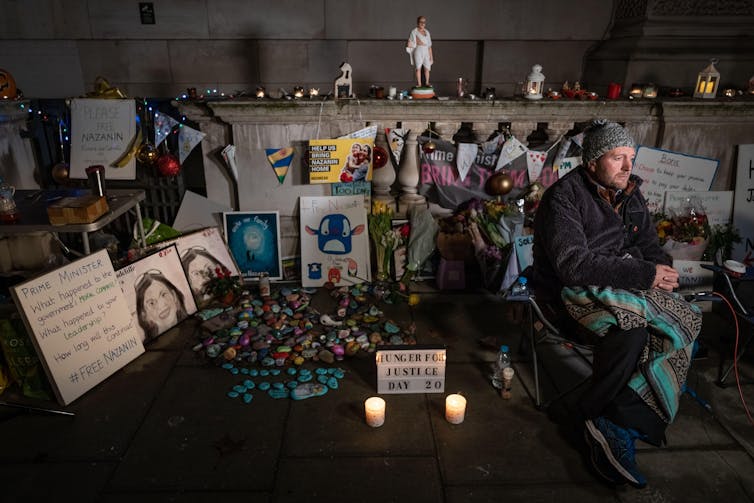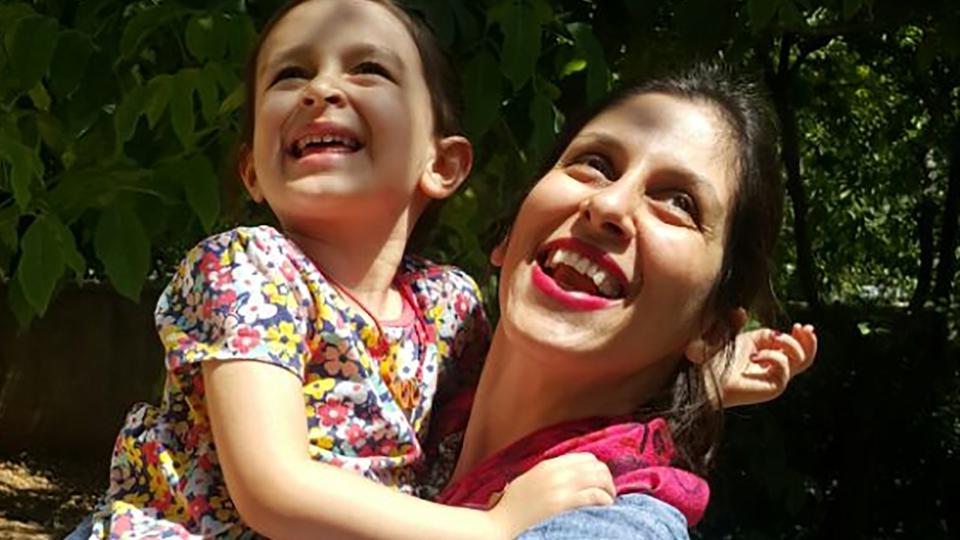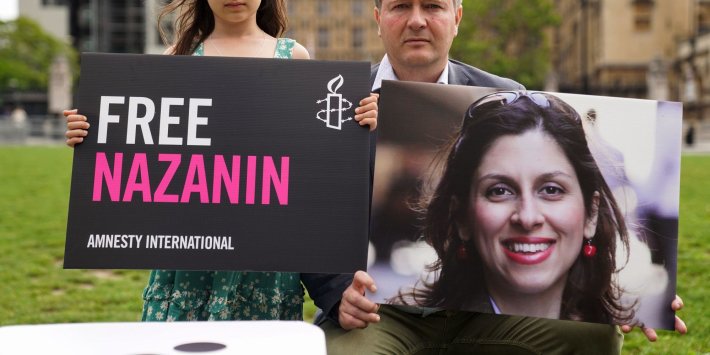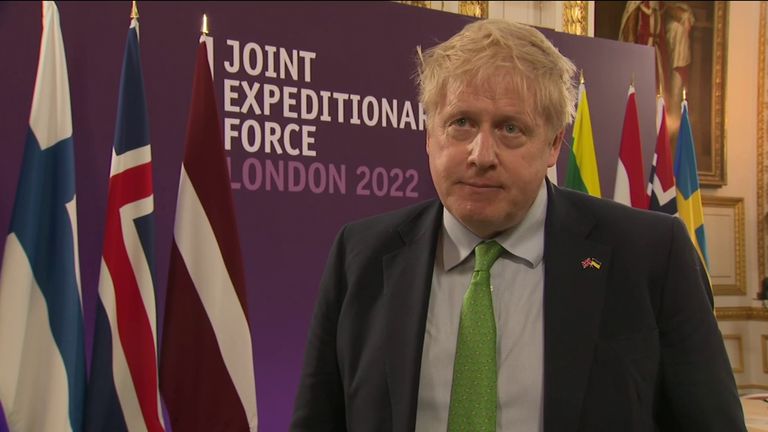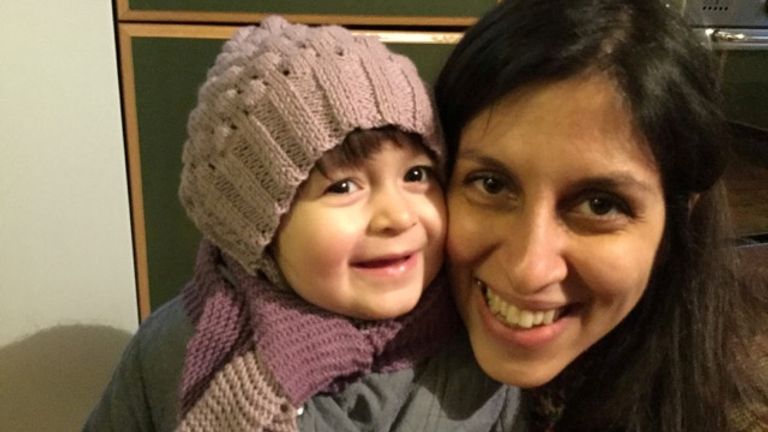Anoosheh Ashoori Accuses Johnson of 'Opportunism' after Release from Iran Prison
Saturday, 26 March, 2022 - 06:15

Sherry Izadi, Elika Ashoori and Aryan Ashoori, the family of Anoosheh Ashoori stage an 'empty chair' protest opposite Downing Street, on the 4th anniversary of his imprisonment, in London, Britain, August 13, 2021.
London - Asharq Al-Awsat
Anoosheh Ashoori, a former detainee in Iran, has accused Boris Johnson of ‘opportunism’, claiming the prime minister only reached out to him after his release from detention.
The 67-year-old British-Iranian was held in Tehran’s Evin prison for five years after a visit to Iran in August 2017 to see his elderly mother.
Nazanin Zaghari-Ratcliffe, a dual British-Iranian citizen who went to Tehran in 2016 to visit her parents when her daughter was a toddler, was released last week along with Ashoori, who is a retired civil engineer.
Iran, which doesn’t recognize dual citizenship, has charged the detainees with crimes such as espionage and sentenced them to long prison terms under harsh conditions.
Speaking exclusively on Sky News program Beth Rigby Interviews, Ashoori said he felt let down by Britain's leader but praised the "fantastic job" civil servants have done behind-the-scenes.
Johnson did not respond to the family's requests for assistance, nor did he reply to a direct plea from Ashoori.
The detained Briton managed to record an audio message while inside the prison asking for Johnson's help. It was published by Sky News in 2020.
The retired engineer said: "I risked my safety but I managed to convey that message to him.
"Unfortunately he did not expend even five minutes to give a telephone call to my family."
However, on Monday, Ashoori received an invitation to meet with the prime minister.
He told Sky News: "Now he's eager to see us. How would you interpret that?
"I think that there's a bit of opportunism involved in it."
Asked if he would meet with the prime minister, Ashoori said: "I'm not sure."

